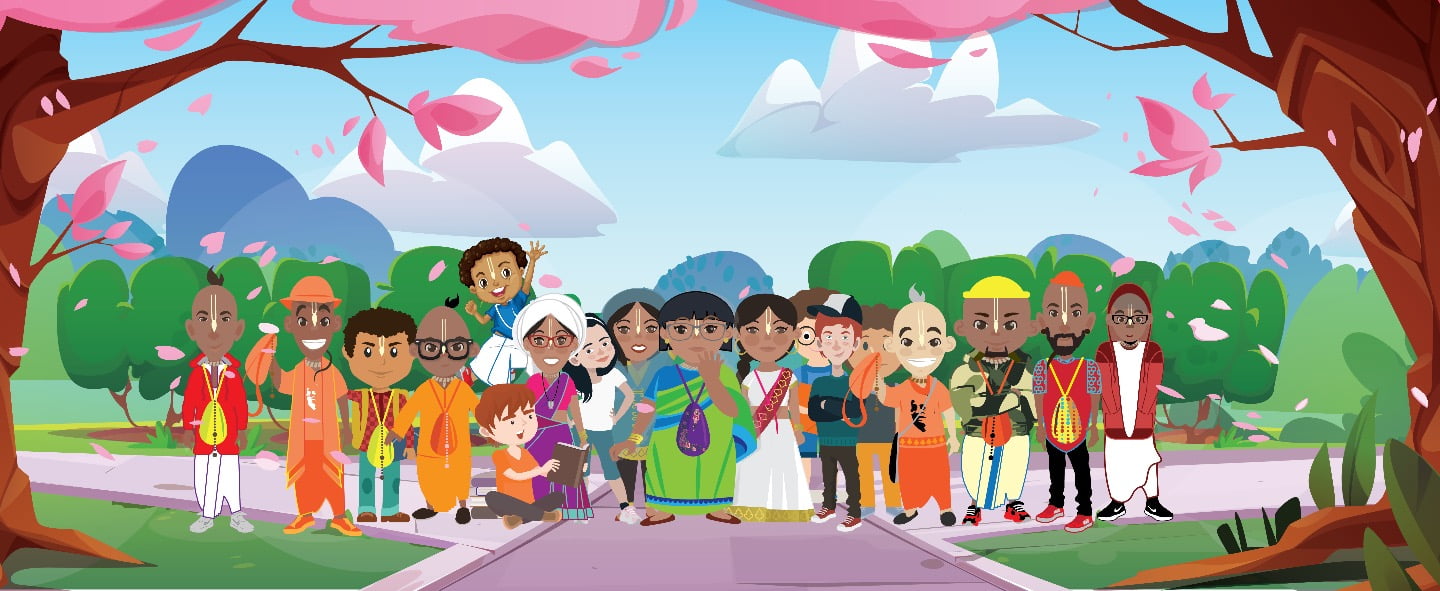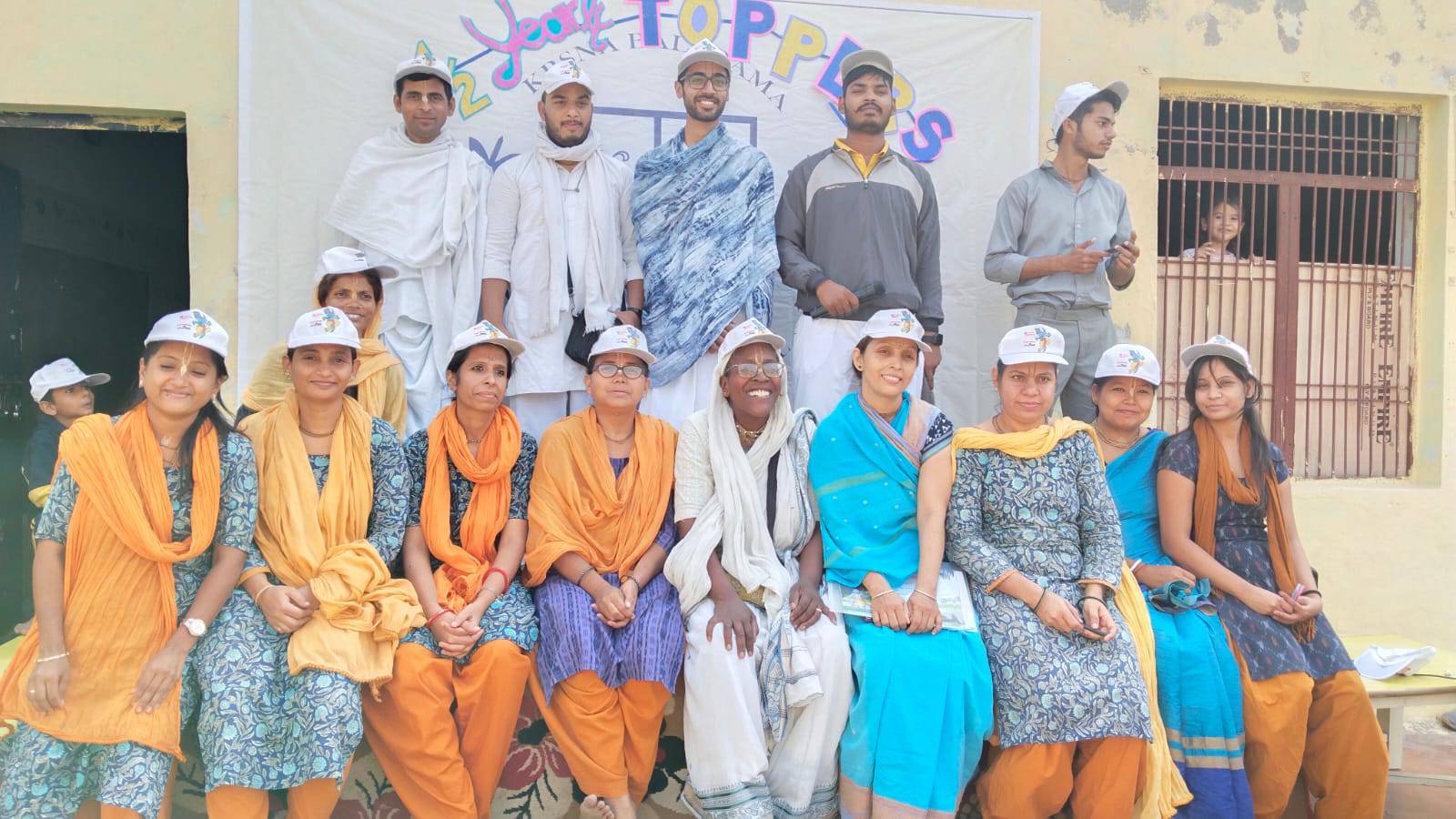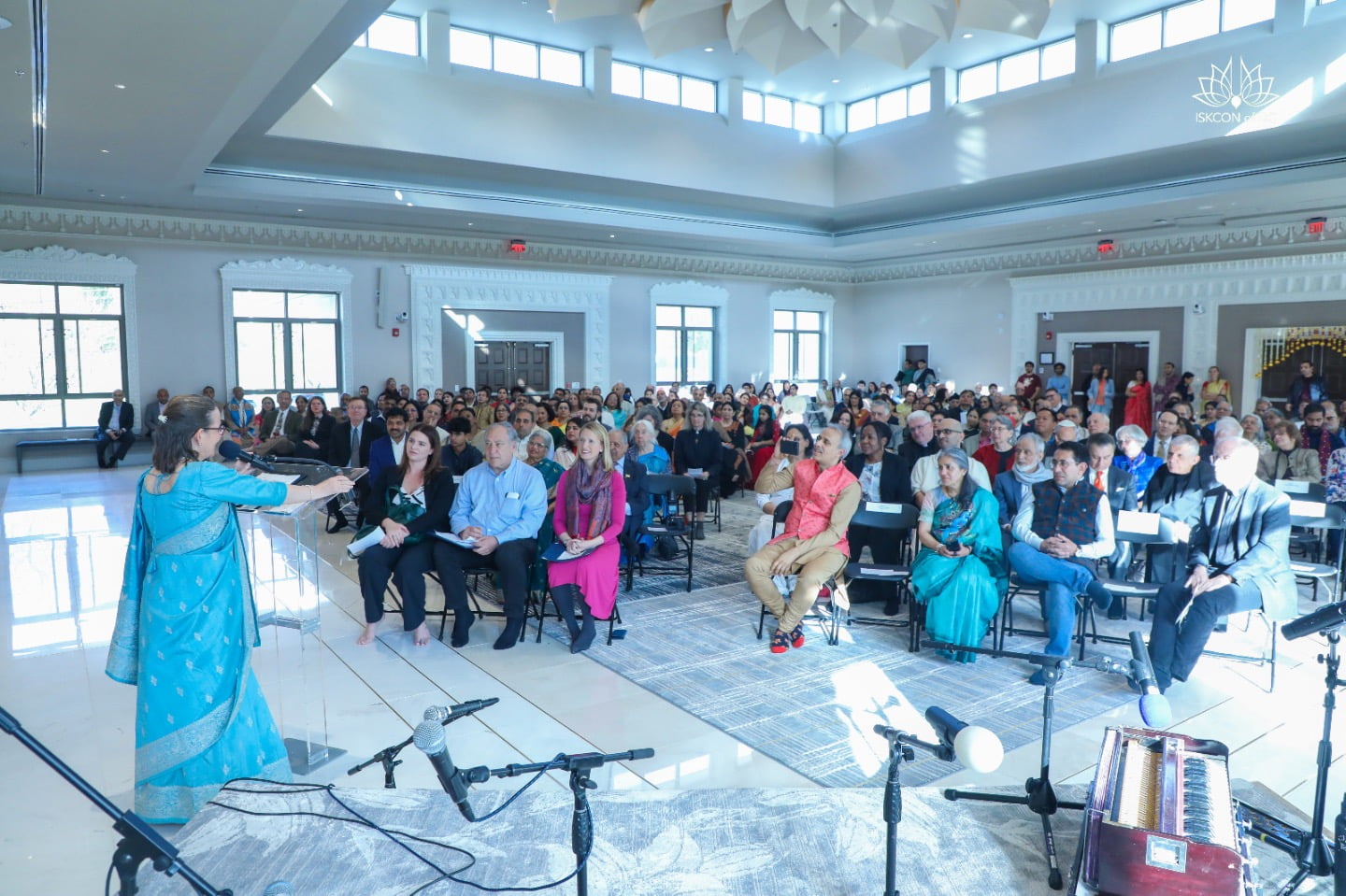ISKCON India Communications Teams Learn From Experts at Annual Conference
By Madhava Smullen | Feb 08, 2019

ISKCON India’s Communications directors recently gathered to strategize, brainstorm and learn from experts in various fields about how to present ISKCON to the media and academia, make the best of social media, handle crises and much more.
The four-day conference took place at ISKCON’s Sri Sri Radha Partha Sarathi Mandir in New Delhi from December 26thto 29th.
Thirty-five devotees participated, including communications directors from various states and cities, temple presidents, and volunteers from the “Midday Meal” school food relief program. Attendance was the most diverse for an ISKCON India Communications Conference yet, including devotees from Nepal, the UK and the US as well as all over India.
Kicking off the conference, Pancharatna Das of ISKCONonline introduced the eye-catching topic “ISKCON’s Identity Crisis.” Each ISKCON center feels different and has its own flavor, he pointed out. So how can we unify our brand – who we are and what we offer – while retaining room for individual temples’ creativity and freedom of expression?
Social media expert Shabda Hari Das, who has worked with self-help guru Tony Robbins and trained over 1,000 companies in social media strategies, gave a crash course on how to manage one’s social media presence.
Santosh Desai, CEO of Future Brands, one of India’s largest brand management agencies, gave an introduction to brand management.
Dr. Amit Kapoor, chairman of the Institute for Competitiveness, India, spoke on value creation, and how to generate value for both one’s organization and stakeholders.
In one of the most fascinating presentations of the conference, three of India’s seniormost journalists participated in a panel discussion on religion and media. They tackled questions like “Do religion and media need each other?” “Is freedom of expression absolute, and if not how much is too much?” “What does the media expect from ISKCON?” and the concept of fake news.
“It was a lively discussion, because all three journalists came from different schools of thought,” says conference organizer and Indian Director of Communications Yudhistir Govinda Das. “The assumption in the devotee community is that when you say ‘the media,’ it’s just one generic thing. But this showed us the very different and diverse viewpoints amongst journalists.”
Also essential and educational were the two sessions led by International Communications Director Anuttama Das. In the first, Anuttama discussed the serious issue of Pastoral Abuse. He alerted devotees on what they should systematically look out for, what precautionary steps ISKCON communities and their leaders should take, how to respond if pastoral abuse does take place, and how to avoid any further occurences.
In Crisis Communication, he cautioned that all too often, we are only reactive, not proactive in dealing with difficult situations. He thus advocated having a plan for crises – if you know what to do, who to contact, who handles relevant departments, and who is assigned to speak to the media, etc, in advance, then fifty per cent of your job is already done, he said.
Meanwhile Shaunaka Rishi Das, Director of the Oxford Centre for Hindu Studies, spoke about developing ISKCON’s response for emerging trends and hot topics in today’s world, listing thirty topics such as euthanasia, war, organ donation, environment, and marriage and divorce.
In a second session, he also drew from his experience at OCHS to advise how ISKCON could improve its academic outreach.
Finally, Ajita Das from Chicago spoke about how to create content that can go viral.
The conference concluded with reports from individual temples on how they had reached different communications audiences – for example the media or academia – in the past year.
A half day was also devoted to a strategic planning session in which participants processed what they had learned and how to utilize it in their future plans.
One devotee on Back to Godhead India’s editorial staff, for instance, said he could use what he had learned at the conference to increase marketing for BTG, while a devotee from Nepal felt enthusiastic about making viral videos with the techniques he had picked up.
“In a general sense I would say that because ISKCON India is such a diverse community, and India is such a large country geographically speaking, this conference offered a rare opportunity to come together to brainstorm, plan, and strategize,” says Yudhistir Govinda.
Looking to the future, communications staff have planned to set up a monthly online Skype or Zoom call to make sure momentum is not lost, as well as a Whatsapp group to keep everyone regularly connected.
“I’ve also started a monthly Webinar, where we will bring in professionals to speak about a different topic each time such as social media, branding, or media interview skills,” Yudhistirsays.
Overall, the conference was very well received, with International Communications Director Anuttama Das writing in a group email that the caliber of speakers and organization made it perhaps the most professional conference he had attended within ISKCON.












